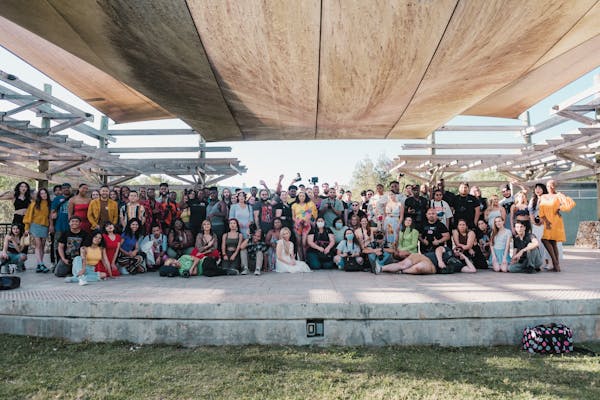For international students in the USA, building a strong network is one of the most valuable steps you can take to enhance your academic experience, broaden your career opportunities, and establish a sense of community. Networking not only connects you with potential job opportunities but also helps you form meaningful relationships with peers, professors, and industry professionals. This guide offers practical strategies for building a strong, supportive network as an international student in the United States.
Why Networking is Important for International Students

As an international student, networking is more than just collecting contacts. It’s about connecting with people who can guide you, share insights into American culture, and help you achieve your academic and career goals. Networking can provide:
- Career Opportunities: A robust network opens doors to internships, job opportunities, and mentorships.
- Cultural Integration: Connecting with locals and other international students eases the transition into a new culture.
- Personal Growth: Building relationships and interacting with diverse people can help you grow personally and professionally.
Effective Networking Strategies for International Students
1. Start Networking Early

The sooner you start building connections, the more opportunities you’ll have to expand your network. Begin by attending orientation events, on-campus mixers, and other events designed to help new students integrate. These events provide a casual setting for meeting people, and you’ll often find others in the same situation as you—eager to make friends and build connections.
2. Utilize University Resources
Most universities in the USA offer numerous resources to help students network. Here are some key options:
- Career Services: Many universities have career services centers that offer networking events, job fairs, and one-on-one counseling for students.
- Alumni Network: University alumni networks are powerful tools. Alumni are usually willing to help current students by offering career advice, mentorship, and even job opportunities.
- Student Clubs and Organizations: Joining student clubs and organizations is an excellent way to meet others with shared interests. Most campuses have clubs for various academic, cultural, and recreational interests.
3. Attend Networking Events and Job Fairs

Universities regularly host networking events, job fairs, and industry-specific meetups. These events are a great way to meet industry professionals and learn about potential career paths. Attend these events with a clear goal: to gather information, connect with people in your field of interest, and build rapport with potential mentors or employers.
Building Connections with Professors and Academic Advisors
4. Approach Professors During Office Hours
Professors are not only valuable for academic guidance but are often well-connected in their fields. Visiting professors during their office hours is an underutilized networking opportunity. Whether you have questions about coursework, or you’re seeking guidance on career plans, professors can offer valuable insights and introduce you to their professional networks.
5. Establish Relationships with Academic Advisors
Academic advisors can also be a great resource. They’re familiar with both university resources and industry connections. Discussing your goals and interests with your advisor can help you learn about events, internships, and contacts relevant to your field.
Expanding Your Network Beyond Campus
6. Volunteer or Take Up Part-Time Work
Volunteering or working part-time is another effective way to expand your network. These opportunities not only introduce you to people outside the academic setting but also provide valuable work experience. Many organizations value volunteers highly and can be a great resource for job references or recommendations in the future.
7. Leverage Social Media and Professional Platforms
LinkedIn for Networking
LinkedIn is a crucial tool for students looking to expand their professional network. Here are a few tips for using LinkedIn effectively:
- Create a Strong Profile: Include a professional photo, a summary of your background, and your goals.
- Connect with Classmates and Professors: Begin by connecting with people you know from university. Then expand by connecting with alumni and professionals in your field.
- Join LinkedIn Groups: LinkedIn has numerous groups based on professional fields, industries, and alumni networks. Participating in these groups can increase your visibility and help you connect with like-minded professionals.
Other Social Media Platforms
Platforms like Facebook and Twitter also have professional groups and pages for specific fields. These platforms are useful for staying updated on industry trends and participating in discussions.
8. Attend Industry Conferences and Workshops
Industry conferences and workshops are excellent for meeting professionals in your field. Many conferences offer discounted rates for students. Networking at these events allows you to connect directly with industry leaders, researchers, and potential employers. Additionally, workshops and seminars give you the chance to learn more about your field while interacting with experts.
Overcoming Common Challenges in Networking as an International Student
9. Addressing Language Barriers
Language barriers can be a challenge, especially in networking situations. Here are some tips to help:
- Practice Speaking: The more you engage in conversation, the more confident you’ll become. Practice with classmates, professors, or join conversation groups.
- Attend Language Workshops: Some universities offer language workshops for international students. These can help improve your English skills and boost your confidence.
10. Embracing Cultural Differences
Networking styles vary across cultures, and understanding American networking norms can be beneficial. In the USA, people often appreciate direct communication, eye contact, and a firm handshake. Don’t hesitate to ask questions about cultural norms if you’re unsure, as most people will appreciate your effort to understand and integrate.
11. Staying Consistent and Following Up
Consistency is essential in networking. Following up with people after meeting them can make a lasting impression. Send a quick email or LinkedIn message thanking them for their time or sharing something relevant to your conversation. Regular follow-ups keep you on people’s minds and can lead to stronger relationships.
Tips for Building a Lasting Network
12. Offer Help When Possible
Networking is a two-way street. Being genuinely helpful to others, even in small ways, can make a big difference. Offering help creates a positive impression and strengthens relationships, making people more likely to reciprocate in the future.
13. Keep an Open Mind and Be Patient
Building a strong network takes time. Don’t expect immediate results. Some connections will grow naturally, while others may not lead anywhere. Stay patient, be genuine, and continue to make efforts to meet people and nurture your connections.
FAQs
1. What is the best way to start networking as an international student in the USA?
Start by attending campus events, joining clubs, and connecting with classmates. Use university resources, such as career services and student organizations, to build your initial network.
2. How can I improve my English skills for networking?
Practice speaking English regularly with friends or classmates, attend language workshops if available, and engage in conversation groups. Regular practice builds confidence and fluency.
3. Are LinkedIn and social media essential for networking?
While they aren’t mandatory, LinkedIn and other professional platforms are extremely useful for networking. They allow you to connect with people in your field, learn about job opportunities, and stay updated on industry trends.
4. What should I talk about with professors during office hours?
Discuss topics related to your coursework, academic goals, and career interests. Professors can offer advice and may even connect you with professionals in your field.
5. How can I network if I’m introverted or shy?
If you’re introverted, try starting with one-on-one conversations instead of large group events. Focus on quality connections and join smaller clubs or interest-based organizations that align with your personality.
Building a strong network as an international student in the USA may seem challenging, but with these strategies, you can form valuable connections that will support you throughout your academic and professional journey. Networking is about more than just career growth; it’s about building a supportive community that helps you thrive in a new environment.

